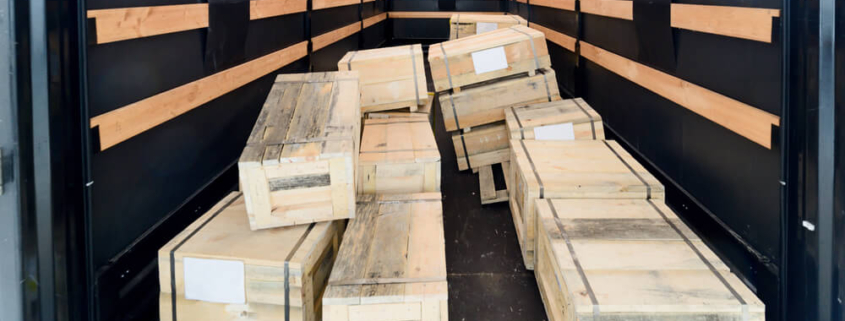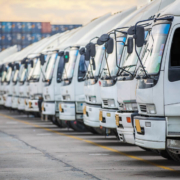How Do Cargo Loading and Securement Practices Contribute to Truck Accidents?
Tractor-trailers are an essential part of America’s economy. A slowdown in deliveries or a shortage of truck drivers can cause entire industries to come to a screeching halt. A truck is only as good as its components, and it’s only as stable as the load it carries. Cargo loading and securement can play a major role in truck accident claims, and it’s crucial to understand how a third party—such as a cargo loader—can be liable for accidents.
There are legal options for those who have been injured in truck accidents. Let us help you plan your next steps. Call us at 678-210-3292 to set up a time to talk now.
The Importance of Proper Cargo Loading
Proper cargo loading is an essential element of truck safety. When cargo is loaded safely and properly, it reduces the risk of an accident. However, when cargo is loaded haphazardly, drivers are constantly fighting against it when they turn, switch lanes, or change speed.
The parties responsible for loading the cargo must do so in a way that distributes the weight evenly inside the trailer. This maintains the truck’s stability and balance. If the load is unbalanced, the truck itself is off-balance. That increases the likelihood of a rollover—and since trucks are top-heavy, that risk is already high.
Cargo should also be positioned in a way that maintains the truck’s center of gravity. A high center of gravity exacerbates a truck’s already high risk of rolling over.
Cargo Securement Errors
When cargo is loaded, it must be properly secured to keep it in place during transit. Cargo that is improperly secured can slide around in inclement weather, throwing the truck into an unbalanced state and possibly getting damaged in the process. A number of cargo loading and securement errors can cause accidents.
Overloading a truck is a common issue. When trucks are loaded beyond their maximum capacity, they are put under enormous strain. Not only is it illegal to transport more than a truck is allowed to carry, but drivers risk brake failure, poor steering control, and longer stopping distances.
Another common error is not securing cargo enough. When a company does not use enough tie-downs, straps, and other securement tools, the cargo is at risk of slipping around the trailer of the truck. This is incredibly dangerous, especially if a driver is not expecting it and cannot make the necessary concessions.
Cargo loading professionals may also increase the likelihood of an accident when they use the incorrect securement equipment. The use of improper equipment can weaken the cargo’s stability, making it easy for the truck to become unbalanced and unsafe.
How Errors Affect Truck Handling and Safety
Cargo loading and securing errors can have a significant impact on truck handling and safety. It is all too easy for a driver to lose control of their truck if cargo is unbalanced or begins shifting around during transit. As a result, the risk of rollovers may increase dramatically. Rollovers are especially likely when cargo is unbalanced or loaded so high that it affects the truck’s center of gravity.
Cargo that is loaded too high or improperly secured can also fall during transit. This may cause damage to other cargo or, if it’s enough to force open the trailer, cause an accident among vehicles behind the truck.
Braking performance also suffers when a truck is overloaded. Trucks already take far longer to stop than smaller vehicles, so anything that threatens brake performance is highly dangerous.
The FMCSA has strict cargo securement regulations, and following these rules can reduce the risk of an accident. When drivers, trucking companies, and cargo loaders fail to adhere to these regulations, they risk fines and other penalties.
Find Out How Bailey, Javins & Carter Can Help You with Your Truck Accident Claim
Have you been injured in a truck accident? If so, you could be entitled to compensation from the liable party. Take the first step in your claim now by talking to the team at Bailey, Javins & Carter. Call us at 678-210-3292 or send us a message online to schedule your free initial consultation now.

 How Do Cargo Loading and Securement Practices Contribute to Truck Accidents?
How Do Cargo Loading and Securement Practices Contribute to Truck Accidents? How Do Trucking Company Safety Standards Affect Accident Rates?
How Do Trucking Company Safety Standards Affect Accident Rates?


 The Future of Trucking Safety: Autonomous Trucks and Accident Prevention
The Future of Trucking Safety: Autonomous Trucks and Accident Prevention